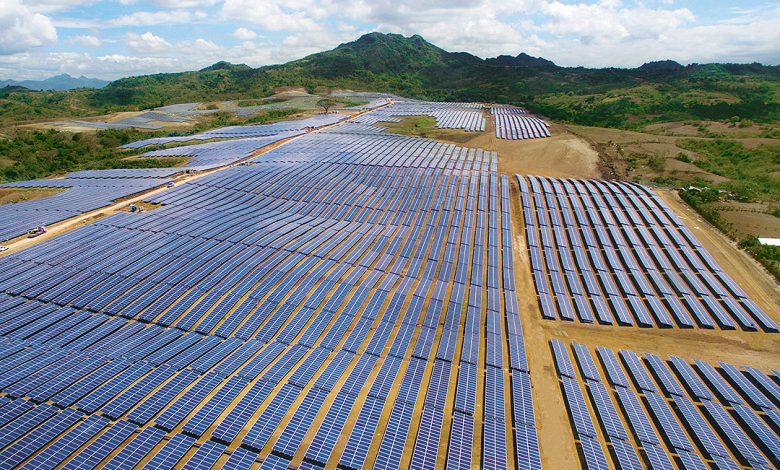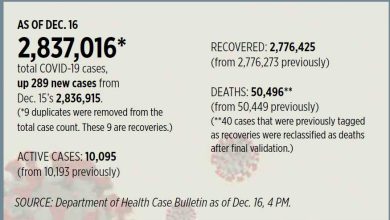Finance chief Dominguez backs multilateral support for clean energy transition

FINANCE SECRETARY Carlos G. Dominguez III said financing from multilateral institutions is crucial to encourage private sector capital in clean energy transition projects in the Philippines.
Vetting done by multilateral agencies boost investor confidence to participate in resource-intensive clean energy transition programs done by developing countries, Mr. Dominguez said at a high-level ministerial dialogue at the 26th United Nations Climate Change Conference in Glasgow last week.
“It is very important that these multilateral agencies actually begin the projects that will allow the private sector to take part, I believe, and give them confidence that these projects have been studied very well, have been vetted by the multilateral agencies,” he said.
Mr. Dominguez told the panel that the multilateral banks could set transparency standards.
He had proposed that climate financing be done through a three-point “blended approach” in the form of grants, investment, and subsidies to improve vulnerable communities’ ability to adapt to climate risks.
The Finance chief has been pushing for more climate financing from wealthy economies that have not offered enough to help developing nations reduce their carbon footprint.
Such countries bear the most responsibility for their historic emissions, he said in the lead-up to the conference.
The dialogue tackled the progress made by countries to come up with a financial system to support climate resilience. Representatives from the UK, Uruguay, the NatWest group, and the Organisation for Economic Cooperation and Development also joined the meeting.
The Philippines has committed to reduce greenhouse gas emissions by 75% from 2020 to 2030. Of the 75% target, just 2.71% can be achieved with internal resources, while the remaining 72.29% rests on international assistance.
The Asian Development Bank (ADB) has partnered with the Philippines and Indonesia to launch an energy transition mechanism (ETM) that aims to fund the early retirement of coal-run power plants and replace them with renewable energy alternatives.
Meanwhile, nongovernment organizations (NGOs) said the state should not bail out coal power plant developers and their financiers, at the expense of taxpayers.
In an e-mailed statement on Sunday, Center for Energy, Ecology and Development (CEED) Executive Director Gerry C. Arances said the ADB’S ETM “seems eager to bail out coal developers and their financiers — using resources that include public funds, to boot — even though many of them pursued projects aware of stranding risks and social, environmental, and climate destruction they would bring.”
Asian Peoples’ Movement on Debt and Development Coordinator Lidy B. Nacpil noted the ADB’s ETM proposes the closure of half of coal-fired power plants in Asia within 15 years, starting with the Philippines, Indonesia, and Vietnam.
“Such a scheme would most likely involve the use of public funds to bail out private corporations invested in coal projects,” Ms. Nacpil said in a separate statement. She noted this would likely involve more loans, adding to the country’s debt burden.
CEED’s Mr. Arances said there is also no assurance that consumers will not shoulder the costs of the bailout through additional charges.
“Coal companies should be made to shoulder their proper part in early closure expenses…on top of any penalties that those of them who incurred complaints or violations are required to pay,” he said.
Convenor of public policy think tank Infrawatch PH Terry L. Ridon in an e-mailed statement said the ADB program should also be used to fund the rehabilitation or expand renewable energy projects.
However, that without safeguards in place to determine what technologies will be selected for filling the gap in power generation, Mr. Ridon said “there is the risk of new large-scale dams, waste-to-energy incinerators, or expanded fossil gas infrastructure being built.”
“All of which would have devastating impacts on fishing and farming dependent families across the country,” he added. — Jenina P. Ibanez and Bianca Angelica D. Anago




